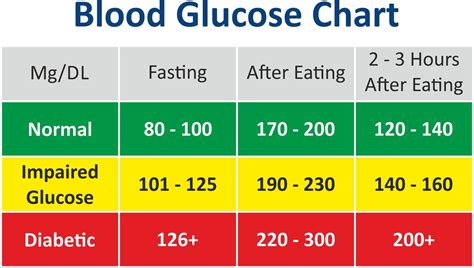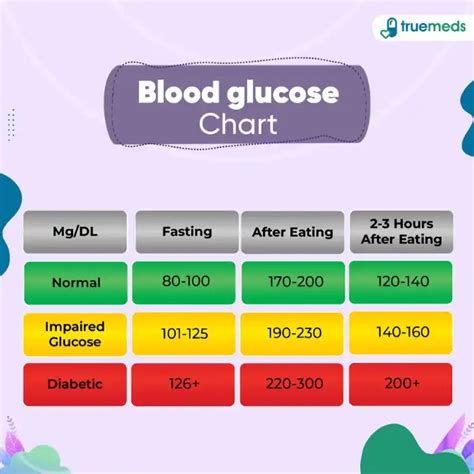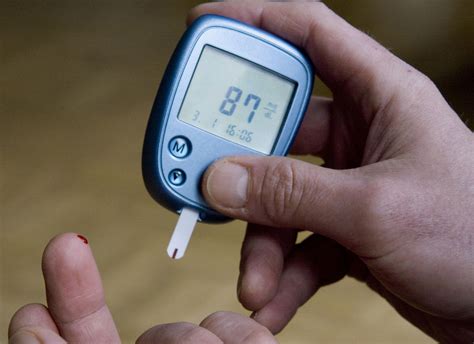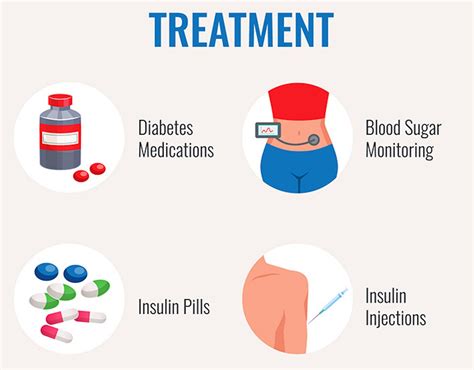Intro
Discover normal blood glucose levels for diabetics, including target ranges, monitoring, and management techniques to control diabetes, blood sugar, and insulin levels.
Maintaining normal blood glucose levels is crucial for individuals with diabetes to prevent complications and manage their condition effectively. Diabetes is a chronic health condition that affects millions of people worldwide, and it occurs when the body is unable to produce or effectively use insulin, a hormone that regulates blood sugar levels. The importance of monitoring and controlling blood glucose levels cannot be overstated, as it plays a vital role in preventing long-term damage to organs and tissues.
For individuals with diabetes, understanding what constitutes normal blood glucose levels is essential to make informed decisions about their diet, exercise, and medication. Normal blood glucose levels vary throughout the day, depending on factors such as meal times, physical activity, and sleep patterns. In general, blood glucose levels are typically measured in milligrams per deciliter (mg/dL) or millimoles per liter (mmol/L). The American Diabetes Association (ADA) provides guidelines for normal blood glucose levels, which serve as a benchmark for individuals with diabetes to strive for.
The management of diabetes requires a comprehensive approach that includes lifestyle modifications, such as a healthy diet and regular exercise, as well as medication and monitoring of blood glucose levels. By maintaining normal blood glucose levels, individuals with diabetes can reduce their risk of developing complications, such as heart disease, kidney disease, and nerve damage. Furthermore, effective management of diabetes can improve overall quality of life, increase energy levels, and enhance mental well-being.
Understanding Blood Glucose Levels

There are several factors that can affect blood glucose levels, including diet, physical activity, stress, and certain medications. For example, consuming a meal that is high in carbohydrates can cause blood glucose levels to rise, while engaging in physical activity can help to lower blood glucose levels. Understanding these factors and how they impact blood glucose levels is crucial for effective management of diabetes.
Factors That Affect Blood Glucose Levels
Some of the key factors that can affect blood glucose levels include: * Diet: Consuming meals that are high in carbohydrates, sugar, and saturated fats can cause blood glucose levels to rise. * Physical activity: Engaging in regular physical activity, such as walking or jogging, can help to lower blood glucose levels. * Stress: Stress can cause blood glucose levels to rise, as the body releases stress hormones, such as cortisol and adrenaline. * Medications: Certain medications, such as steroids and certain psychiatric medications, can affect blood glucose levels.Normal Blood Glucose Levels For Diabetics

It is essential to note that these are general guidelines, and target blood glucose levels may vary depending on individual factors, such as age, health status, and medication regimen. Individuals with diabetes should work with their healthcare provider to determine their individual target blood glucose levels and develop a personalized treatment plan.
Target Blood Glucose Levels
Target blood glucose levels are essential for effective management of diabetes. By maintaining target blood glucose levels, individuals with diabetes can reduce their risk of developing complications and improve overall quality of life. Some of the benefits of maintaining target blood glucose levels include: * Reduced risk of heart disease and stroke * Lower risk of kidney disease and nerve damage * Improved energy levels and mental well-being * Enhanced overall quality of lifeMonitoring Blood Glucose Levels

Regular monitoring of blood glucose levels provides valuable information that can help individuals with diabetes make informed decisions about their treatment plan. By monitoring blood glucose levels, individuals with diabetes can identify patterns and trends, make adjustments to their diet and exercise routine, and adjust their medication regimen as needed.
Benefits Of Monitoring Blood Glucose Levels
Some of the benefits of monitoring blood glucose levels include: * Improved blood glucose control * Reduced risk of complications * Enhanced overall quality of life * Increased energy levels and mental well-being * Better informed treatment decisionsTreatment Options For Diabetics

It is essential to work with a healthcare provider to determine the best treatment plan, as individual needs and circumstances can vary greatly. By combining medication, lifestyle modifications, and alternative therapies, individuals with diabetes can achieve optimal blood glucose control and improve overall quality of life.
Medications For Diabetes
Some of the common medications used to treat diabetes include: * Metformin: This is an oral medication that helps to lower blood glucose levels by decreasing glucose production in the liver. * Sulfonylureas: These are oral medications that stimulate the pancreas to produce more insulin. * Insulin: This is an injectable medication that replaces the body's natural insulin production.Lifestyle Modifications For Diabetics

By incorporating lifestyle modifications into their treatment plan, individuals with diabetes can improve blood glucose control, reduce their risk of complications, and enhance overall quality of life.
Benefits Of Lifestyle Modifications
Some of the benefits of lifestyle modifications include: * Improved blood glucose control * Reduced risk of complications * Enhanced overall quality of life * Increased energy levels and mental well-being * Better weight managementConclusion And Next Steps

If you or someone you know has diabetes, it is essential to work with a healthcare provider to determine the best treatment plan. By combining medication, lifestyle modifications, and alternative therapies, individuals with diabetes can achieve optimal blood glucose control and improve overall quality of life. Remember to stay informed, stay proactive, and take control of your diabetes management.
We invite you to share your thoughts, experiences, and questions about diabetes management in the comments section below. Your feedback is valuable, and we look forward to hearing from you.
What are normal blood glucose levels for diabetics?
+Normal blood glucose levels for diabetics vary depending on the time of day and other factors, such as meal times and physical activity. The American Diabetes Association recommends target blood glucose levels of 70-130 mg/dL before meals, less than 180 mg/dL after meals, and 100-140 mg/dL at bedtime.
How often should I monitor my blood glucose levels?
+The frequency of monitoring blood glucose levels depends on individual factors, such as the type of diabetes, medication regimen, and lifestyle. Generally, it is recommended to monitor blood glucose levels at least 4-6 times per day, including before meals, after meals, and at bedtime.
What are the benefits of maintaining normal blood glucose levels?
+Maintaining normal blood glucose levels can reduce the risk of complications, such as heart disease, kidney disease, and nerve damage. It can also improve energy levels, mental well-being, and overall quality of life.
